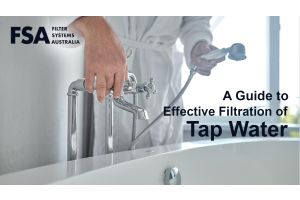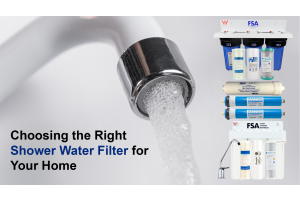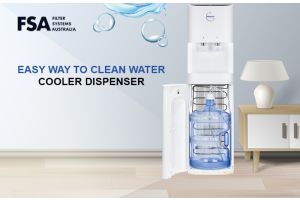

It is no surprise that our eating habits affect our oral health. But it’s not just - what you eat- that affects your teeth but what you drink has a great impact on the health of your teeth as well. While soft drinks, soda and sugary beverages are a popular topic of debate when it comes to oral health, the type of water you drink, can also have a significant impact on your teeth.
Drinking clean water is one of the easiest and most effective ways to keep your teeth healthy and your oral health in check. There are a number of reasons why it is a key player in your oral health. Water contains fluoride which is known to prevent and even reverse the early stages of tooth decay. It washes away the leftover food particles around your teeth that serve as food for bacteria as well as helps prevent dry mouth. Most people think that all water is the same and offer same benefits, but there’s a bit of variation in water depending on the source.
Read on to learn about the different types of water and how exactly each of them affects your teeth.
TAP WATER

Most dentists recommend drinking water that comes straight from your tap as it contains some essential minerals, such as calcium, magnesium, and phosphorous. Local water supply authorities in many cities add chemicals, vitamins and minerals to tap water in an effort to boost health benefits.
However, the biggest dental benefit from standard tap water is fluoride.
While fluoride itself is a topic of debate these days, drinking fluoridated tap water has been linked with cavity prevention and strengthened enamel in children as well as adults. It is important to note that fluoride, which occurs naturally in water and many foods, doesn’t heal or reverse any pre-existing tooth decay, but it certainly helps prevent new cavities from the start.
Also remember that tap water in some locations may contain excess impurities, making it necessary to pass your tap water through a water purifier instead of drinking it straight from the tap. Despite the presence of fluoride and other beneficial minerals, unfiltered fluoridated tap water can cause more harm than good.
BOTTLED WATER

As much as it is advised to avoid bottled water, a large population of Australia considers bottled water more convenient to meet their daily drinking requirements than any other sources. Bottled water isn’t inherently bad for your dental health, but the fact that you are missing out on the added health benefits that come from fluoridated or chlorinated tap water as well as other added minerals and vitamins, should not be overlooked.
Another reason to avoid bottled water is that plastic bottles become susceptible to bacteria as soon as their seal is broken and are stored at the room temperature.
FILTERED (TAP) WATER

Even after being treated by the municipal authority, tap water may contain a number of chemicals and contaminants, depending on your area, which can cause harm to your health. That is why people use a filter system to remove harmful impurities and bacteria to make it suitable for drinking. Whether you have an under sink water filter, a water purifier or a whole house water filter, you may feel like you are doing the best possible thing to get clean and healthy water for your family. However, filtered water is not always the best option, at least not for everyone.
The filter system you are using to get rid of impurities may also be removing some of the beneficial minerals including fluoride. It all depends on the type of filter you choose. At Filter Systems Australia, we offer filtration systems that are designed to only filter out traces of fluoride while removing harmful contaminants from the water so that you can get the best of both worlds.
DISTILLED WATER

Distilled water is considered the purest type of water that has both contaminants and minerals removed. Though distilled water is exceptionally pure and not harmful to your body or overall health in any way, the fact that the distillation process also rids water of essential minerals like fluoride, makes it a no-no for many people, especially those who are more concerned about their dental health. So, it doesn’t harm your teeth, but it will not do much to protect them either and that’s why many dentists would not recommend distilled water generally.
In case, you prefer distilled water for removing harmful contaminants, you need to make sure you are getting enough minerals from food or supplements, to keep your teeth healthy.
Distilled water is easily available in bottles or you can also distil your own water at home. There are many reverse osmosis filters that also allow you to distil your water. In either case, you will need to add fluoride to your water or consume foods rich in fluoride or fluoride supplements to make sure your teeth get enough dose of minerals they need to keep healthy.
If you drink distilled water but are not ready to do that extra work for your dental health, you are opening yourself up to tooth decay and cavities.
So, Which Type of Water is the Best for Your Teeth?
Whatever your source of water, you want to make sure it has the minerals that boost the health of your teeth and protect against cavities and other dental issues. Tap water that passes through a certain kind of filter system, which is designed to remove impurities while retaining traces of essential minerals, can be the best choice for most people. Remember that keeping your teeth in good health involves multiple processes, and a lot of people don’t realise that the type of water they choose to drink is one of them. Making well-informed decisions about your drinking water helps your body function at its peak efficiency as well as improves your dental health.



